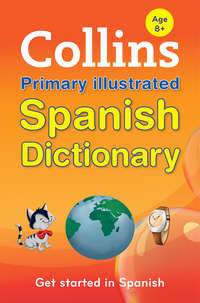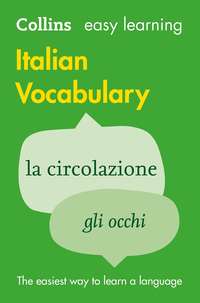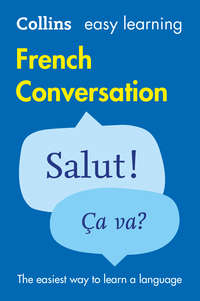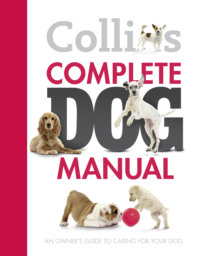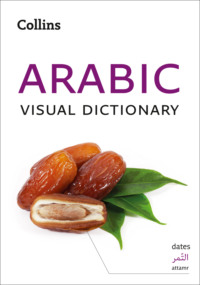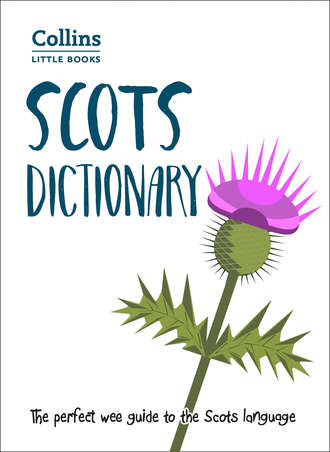
Полная версия
Scots Dictionary: The perfect wee guide to the Scots language
Berwickshire (berr-ick-sher or berr-ick-shire) Berwickshire is a historic county in the extreme southeast of Scotland, on the North Sea coast and the border with England. It is now part of the Scottish Borders council area.
besom (biz-zum) Besom is a derogatory term for a woman or girl: Cheeky wee besom!
bevvy As in some other parts of Britain, in Scotland any alchoholic drink is sometimes referred to as bevvy. A bevvy is a drinking session, and a particularly drunken one is sometimes called a heavy bevvy: It’s just another excuse for a good bevvy. To bevvy is to drink alcohol, and hence, someone who is drunk is sometimes said to be bevvied. [The word is an informal shortening of beverage]
Bhoys
Bhoys (boys) Celtic football team and its supporters are sometimes referred to as the Bhoys. [This is a mock Gaelic spelling of Boys which reflects the team’s origin among Glasgow’s Irish community]
bide To bide in a place is to live there: They were biding in a flat near the harbour. To bide in a state or condition is to remain in it: We’re no awa to bide awa. To be able to bide a person or thing is to be able to endure or tolerate it. This sense is usually used in the negative, indicating that something is intolerable: I cannae bide that man. To bide by a decision is to comply with it, even if you disagree with it: Party officials announced that they would bide by the outcome of the ballot. The past tense can be either bided, bid, or bode, and the past participle bided or bade.
bidie-in (bide-ee-in) Someone’s bidie-in is the person who is living with them as their husband or wife although they are not formally married. The word is originally from the Aberdeen area, but is now heard elsewhere in Scotland: The other significant person in McCafferty’s life is Joanna, the woman he fondly describes as his ‘bidie-in’.
biggin or bigging A biggin is a slightly old-fashioned word for a building: A sweet old granny came toddling up the brae to the biggin. In particular, the outbuildings and labourers’ cottages on a farm or estate are sometimes referred to collectively as the biggins.
bike A variant spelling of byke.
bile To bile is to boil. A fairly rude way of informing someone that they should go away, or that they are talking rubbish, is to tell them to bile their heid.
biling A biling of vegetables, especially potatoes, is enough of them to do for one meal; a Northeastern word. Biling also means very hot: Can ye no open a windae? It’s biling in here. See also boiling.
billy A billy is an old-fashioned word for a man or lad, often implying that the person is a friend or workmate.
Billy or Billy Boy In the Glasgow area, a Billy is an informal name for a Protestant, as in the sectarian football chant which begins Oh I’d rather be a Billy than a Tim. [The term is probably from the name of the Protestant King William III, who defeated the deposed Catholic King James VII (James II of England) in the late 17th century]
bing A bing is a large hill-like mound of waste from a mine or quarry: Large oil-shale bings disfigured the countryside.
binger (bing-er) A binger is a West Central Scottish slang term for a losing bet, especially one on an unsuccessful racehorse.
birk A birk is a birch tree.
birl To birl is to spin or revolve: She watched the clothes birling round in the washing machine.
birse (birss) To have or get one’s birse up is to be or become angry or annoyed. [The phrase comes from an earlier sense of birse meaning bristle]
bit 1 In parts of South and West Scotland, the place where someone lives is known as their bit: Can Kirsty come out and play at my bit? 2 A bit is a boot.
black-affrontit (black a-frunt-it) or black-affronted To be black-affrontit is to be very embarrassed or offended by something.
black bun Despite its name, black bun is not actually a bun, but is a type of very rich dark fruitcake covered in pastry, which is traditionally eaten at New Year.
blackening A blackening is a type of pre-wedding ritual carried out in some areas where the bride or groom is smeared with mud, treacle, or some similar dark-coloured substance and then often paraded through the streets by their friends.
black house
black house A black house is a type of thatched house formerly found in the Hebrides and West Highlands, which was built mainly from turf and had an open fireplace in the middle of its one room. [The term is a translation of the Gaelic tigh dubh]
blackie A blackie is an informal name for a blackbird.
Black Isle The Black Isle is a peninsula in Northern Scotland, on the East Coast slightly north of Inverness, which lies between the Moray and Cromarty Firths. [It is probably so called because until the late 18th century much of it was uncultivated black peat moor]
Black Watch The Black Watch is a traditional name for the Royal Highland Regiment in the British Army. [The name is a translation of a Gaelic term referring to the dark tartan they originally wore]
blae (rhymes with clay) Something which is blae in colour is dark blue with hints of grey and purple.
blaeberry (blay-ber-ree) A blaeberry is an edible purplish-black berry of the type also known as a bilberry or whortleberry. It is also the name of the bush on which these berries grow, which grows wild on some moorland.
blaes (blaze) Blaes is crushed hardened clay or shale, reddish or bluish-grey in colour, which is used to form the top layer of a sports ground: a blaes pitch.
blate (rhymes with plate) Blate is an old-fashioned or literary word meaning very timid or diffident or, to put it in more informal terms, backwards at coming forwards: She wasn’t blate to tell him what she thought of him.
blatherskate (blaTH-er-skate) or blatherskite (blaTH-er-skite) A blatherskate is someone who talks a lot, but rarely says anything sensible.
blaud (blahd) To blaud is a Northeastern word meaning to spoil or damage. Something which is blaudit is spoiled or damaged: E tatties are aa blaudit; a park o blaudit neeps.
blaw To blaw is to blow. Blaw is also a slang word for marijuana: He’s been at the blaw.
bleezin or bleezin fou To be bleezin is to be very drunk. This word is in current use in the Northeast, but old-fashioned or literary elsewhere: He wis fair bleezin.
blether (bleTH-er) To blether is to talk or chatter. A blether means a conversation or chat: It’s nice to sit around and have a wee blether with friends. An overly talkative person can also be called a blether: He’s nice, but a bit of a blether. To describe something as blethers is to say that it is nonsense.
blin (rhymes with pin) Blin means blind. A blin lump is a boil or other swelling which never comes to a head.
blooter A blooter is a wild directionless kick of a ball. To blooter a ball is to kick it with more force than accuracy: He blootered it over the bar.
blootered A person who is blootered is very drunk: He came home absolutely blootered.
bluebell The bluebell is a plant with narrow leaves and pale blue bell-shaped flowers. It grows on dry grassland and moors, and flowers in the summer. In England, it is known as the harebell. The Scots name for the woodland plant known in England as the bluebell is the wild hyacinth, although it is now often called the bluebell in Scotland as well.
Blue Brazil The Blue Brazil is the nickname of Cowdenbeath football club. The club is usually to be found in Scotland’s lower leagues so the epithet, comparing the blue-clad team to a rather more successful set of footballers, is ironic but affectionate.
Bluenose A Bluenose is a supporter of Rangers football team. The term is either derogatory or jocular depending on the speaker and tone.
Blue Toon The BlueToon is the nickname of Peterhead in Aberdeenshire. The town and its football club share this epithet, which is perhaps a reference to the colour of clothes worn formerly by the town’s fishermen.
boak
boak or boke To boak is to vomit. Something exceptionally unpleasant can be said to give you the boak, or even worse, the dry boak: Even the look of liver gives me the dry boak, never mind the taste! Boak is vomit: There was boak all down the front of his shirt. [The word probably comes from the sound of someone retching or vomiting]
bocht (bawCHt) Bocht means bought.
bodhrán (bow-rahn) A bodhrán is a shallow one-sided drum, looking rather like a large tambourine, which is held in an upright position and played with a short two-headed stick. Originally Irish, it is now also used by Scottish folk musicians. [The name comes from Irish Gaelic]
body (bud-dee) A body is a person: a cheery wee body. A body is a way of referring to oneself: Can ye no leave a body alane?
body swerve To give something a body swerve, or to body-swerve it, is to avoid it because you think it will be unpleasant or unenjoyable. It is sometimes shortened to swerve. [The phrase comes from the image of a footballer dodging round an opponent]
boggin Something which is boggin is very dirty.
bogie or bogey (rhymes with fogey) 1 A bogie is the name given in some areas to a child’s homemade vehicle constructed from pram wheels, wooden boxes, etc. Elsewhere this is known as a cairtie, geggie, hurlie’, or piler. [This sense is from the same root as the English bogie, a wheel unit on a railway carriage] 2 The phrase the game’s a bogie is used when something, originally but not always a children’s game, has to be abandoned, because a situation has been reached where it is impossible to have a fair or valid outcome. [This sense may be connected with bogey, an evil or mischievous spirit (as in bogeyman)]
bogle (rhymes with ogle) A bogle is an old-fashioned name for a ghost. Bogle is also short for tattie-bogle, a scarecrow.
boiling A boiling is a hard sweet made from boiled sugar which has been flavoured and coloured.
boke A variant spelling of boak.
bonnet A less common variant of bunnet.
bonnie or bonny Someone or something which is bonnie is attractive and pleasant to look at: I like your hair. It’s bonnie; the bonnie, bonnie banks of Loch Lomond. A bonnie amount is a large amount; now a rather old-fashioned use: That must have cost a bonnie penny. See also fechter.
bonspiel (bon-speel) A bonspiel is a curling tournament. Originally they were held outdoors on frozen lochs. [The origin of the term is uncertain, but it seems to be of Dutch or Flemish derivation: the second part is related to Dutch spel and German Spiel meaning game]
bonxie (bonk-si) The bonxie is the Shetland name for the great skua: The Arctic skua is smaller than the great skua, or “bonxie”, but even more aggressive. [The word is probably of Scandinavian origin]
bool A bool is one of the large black balls used in the game of bowling, or among children, a marble. The games of bowling and marbles are both known as bools. If someone is described as speaking with a bool in their mou or mooth they are regarded as having an affectedly posh accent.
boorach or bourach (boo-raCH) A boorach is a word used in Northeastern Scotland to mean a group of assorted people or things. In the Highlands, boorach has the slightly different meaning of a mess or a disorderly state or heap. [Both senses are from the Gaelic bùrach a digging]
Borderer A Borderer is someone who lives in, or comes from, the area along the border between Scotland and England, in Scottish use particularly someone who lives on the Scottish side of the border.
Borders
Borders The Borders is the area of Southern Scotland near the border with England, extending from the Solway Firth just south of Gretna in the west to a few miles north of Berwick-upon-Tweed in the east. The Scottish Borders is the name of a council area that extends inland from the East Coast to where it meets Dumfries and Galloway, about twenty kilometres inland from the eastern end of the Solway Firth.
bosie (rhymes with cosy) Bosie is a Northeastern word meaning an embrace or cuddle: Gie’s a bosie. The bosie is the bosom: Stick that flooer in yer bosie.
bothan (both-an) In the Western Isles, a bothan is a building where alcohol is illegally sold and drunk. [The name comes from the Gaelic word for a hut]
bothy (rhymes with frothy) The word bothy has a variety of meanings, all of which ultimately have to do with it being a hut used for shelter. Historically, a bothy was a building on a farm providing eating and dormitory facilities for unmarried farm workers, most common in the Northeast. Nowadays, the term has come to mean a hut or cabin where workers, for instance those on a building site, can go to shelter from bad weather, for a tea break, or to eat. A bothy is also a sparsely furnished hut or cottage which hillwalkers or climbers can use for shelter or overnight accommodation. The plural is bothies.
bothy ballad A bothy ballad is a type of folk song which originated among farmworkers in Northeast Scotland. It usually deals with everyday rural life, often in a bawdy manner.
bottling A bottling is the Glasgow name for a pre-wedding ritual in which the bride-to-be is dressed up in outlandish clothes and paraded through the streets by her female friends and relatives to the accompaniment of banging potlids. Any man such a group stumbles across is expected to give them money in return for the privilege of kissing the bride. In some other parts of Scotland where this is carried out, for instance parts of Lanarkshire, it is known as a creeling.
bourach (boor-aCH) A variant of boorach.
bowff or bouff (bowf) 1 To bowff is to smell strongly and unpleasantly, like something which has decayed and gone off: Eeugh! This beer’s bowffin! A bowff is a strong unpleasant smell. 2 To bowff is also to bark, or to speak aggressively or cough in a way reminiscent of barking.
bowly or bowlie (rhymes with jowly) Someone who is bowly or bowly-legged has bow legs: his rounded shoulders and bowly legs.
box 1 The box is an informal name for the accordion, often used in Scottish country dancing or folk music circles: He is a singer and a good box player. 2 Someone’s box is their head. This sense is usually enountered in the idioms out of one’s box meaning very drunk, or to do one’s box in meaning to baffle or exhaust mentally.
boy A boy is an apprentice.
brae (bray) A brae is a hill or hillside. In place names such as the Gleniffer Braes, the word braes means a hilly upland area.
braeheid (bray-heed) The braeheid or the heid o the brae is the area at the top of a hill.
bramble In Scotland, bramble is a name for the blackberry fruit and not just the blackberry bush. To go brambling is to go out picking blackberries.
brammer A brammer is a West of Scotland slang term for something very good: Is that a new tie? It’s a brammer. [The word may be a Scottish form of the army slang term brahma with the same meaning, and possibly comes via the former British military presence in India from Brahma, who is one of the most important Hindu gods, and hence worthy of great respect and admiration]
brander A brander is the metal grating covering a drain in the street.
braw
braw Something which is braw is fine or excellent: It’s a braw day. [The word is a Scots form of brave]
bree The liquid in which something edible has been boiled or left to soak is known as bree. Some types of soup are also traditionally called bree, such as partan bree, a type of crab soup. In the Northeast, to bree potatoes or other vegetables is to drain the water from them after they have been boiled. Barley bree is a poetic or old-fashioned name for whisky.
breeks Breeks are trousers or, occasionally, underpants. [The word is a Scottish form of breeches]
breenge To breenge is to go somewhere or do something in a hasty and forceful, and usually clumsy or thoughtless, manner: He breenged his way through the crowd. A breenge is a forceful but clumsy rush.
breenger (breenge-er) In West Central Scotland, a breenger is a person who acts impetuously and without proper thought.
breid (breed) Breid is the Scots word for bread. In parts of the Northeast, it also means oatcakes.
bridie A bridie is a type of semi-circular pie or pasty consisting of pastry folded over a minced meat and onion filling. They originated in the town of Forfar in Northeast Scotland, and are therefore sometimes known as Forfar bridies. [They were apparently originally served at weddings, hence the name, which is a shortening of bride’s pie]
brig A brig is a bridge.
broch (rhymes with loch) A broch is a type of wide round stone tower, dating from the Iron Age, which was large enough to serve as a fortified home. The ruins of brochs can still be seen in various places, mainly in the North and the Islands.
Brocher (broCH-er) A Brocher is someone from the towns of Fraserburgh or Burghead in Northeast Scotland. [The name comes from an old sense of broch, a burgh or town, still used as local nicknames for Fraserburgh and Burghead]
brocht (brawCHt) Brocht means brought: He’s been weel brocht up.
brock (rhymes with lock) or bruck (rhymes with luck) Brock is rubbish or broken or leftover pieces: He called the plan “a load o bruck”. [The word ultimately comes from the Old English brecan to break]
brogan (rhymes with slogan) Originally a brogan was a type of Highland shoe made from untanned hide and stitched with leather thongs, but nowadays it is used to refer to any type of heavy walking shoe, especially the brogue, a style of shoe decorated with a pattern of perforations along the seams. [The word comes from the Gaelic bròg a shoe, plus the diminutive ending -an]
broo A variant of buroo.
brook In the Northeast, soot is known as brook. Something which is brookie or brookit is sooty or dirty.
brose (rhymes with rose) Brose is an old-fashioned porridge-like dish consisting of oatmeal or peasemeal mixed with boiling water, a pinch of salt, and sometimes some butter. See also Atholl brose.
bruck (rhymes with luck) The usual Orkney and Shetland form of brock.
bubble To bubble is to cry, snivel, or weep: The wean came in from school bubblin. A bubble is a cry: She had a wee bubble at the end of the picture.
bubbly Someone who is bubbly is in, or on the point of, tears, or is sulking: Ah thought ye wantit to go. Well stick, bubbly!
bubbly jock A bubbly jock is a male turkey. [It is probably so called because of the noise it makes]
bucket In Scotland, a bucket can be a wastepaper bin or dustbin as well as a pail: Chuck it in the bucket, will you? A bucket is any undefined but large amount of alcohol. In this sense the word is usually encountered in phrases such as we’d both had a fair bucket or he takes a good bucket.


